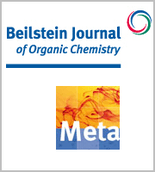
Beilstein Journal of Organic Chemistry
Scope & Guideline
Catalyzing knowledge sharing in the realm of organic chemistry.
Introduction
Aims and Scopes
- Synthetic Methodology Development:
The journal emphasizes the development of new synthetic methodologies, including novel reactions and strategies for the construction of complex organic molecules. This includes studies on catalysis, organocatalysis, and electrochemical synthesis. - Natural Product Chemistry:
Research on the isolation, synthesis, and characterization of natural products is a core area of focus, with papers exploring the biological activities and synthetic routes to these compounds. - Materials Chemistry:
The journal covers advancements in organic materials, including organic semiconductors, polymers, and nanomaterials, highlighting their synthesis, properties, and applications in various fields such as electronics and photonics. - Mechanistic Studies:
A significant portion of the articles addresses the mechanisms of organic reactions, utilizing computational methods alongside experimental approaches to provide insights into reaction pathways. - Green Chemistry:
Sustainable practices in organic synthesis, including the use of renewable resources, solvent-free processes, and environmentally benign reagents, are increasingly featured, promoting greener methodologies in organic chemistry.
Trending and Emerging
- Electrochemical Synthesis:
There is a notable increase in research focusing on electrochemical methods for organic synthesis, highlighting the potential for greener, more sustainable approaches in chemical transformations. - Machine Learning and Computational Chemistry:
The integration of machine learning techniques in predicting reaction outcomes, optimizing synthetic pathways, and understanding complex chemical systems is gaining prominence, showcasing a trend toward data-driven research. - Sustainable and Green Chemistry Practices:
Research on sustainable practices, including the use of renewable resources and environmentally friendly reagents, is on the rise, reflecting a broader commitment to sustainability in chemical research. - Organocatalysis and Asymmetric Synthesis:
The development of organocatalytic methods, particularly for asymmetric synthesis, is expanding, indicating a trend towards more efficient and selective synthetic strategies. - Natural Product Biosynthesis:
There is growing interest in the biosynthesis of natural products, with a focus on understanding enzymatic pathways and leveraging biosynthetic routes for the synthesis of complex organic molecules.
Declining or Waning
- Traditional Organic Synthesis:
Papers focusing solely on traditional organic synthesis methods without novel insights or improvements have become less common, as the field shifts towards more innovative and efficient methodologies. - Conventional Medicinal Chemistry Approaches:
Research centered on classical medicinal chemistry strategies is waning, as there is a growing emphasis on more integrated approaches, including biochemistry and molecular biology. - Inorganic-Organic Hybrid Systems:
Interest in purely inorganic-organic hybrid systems has decreased, with a shift towards more organic-centric materials and applications, particularly in the context of organic electronics and photonics.
Similar Journals

RUSSIAN JOURNAL OF GENERAL CHEMISTRY
Exploring New Horizons in General ChemistryThe Russian Journal of General Chemistry is a prominent scholarly publication dedicated to advancing the field of general chemistry. Published by MAIK NAUKA/INTERPERIODICA/SPRINGER, this journal contributes significantly to the global chemistry landscape, offering a platform for researchers and professionals to share their latest findings and methodologies. With an ISSN of 1070-3632 and an E-ISSN of 1608-3350, it has established itself as a resource for high-quality research articles since its inception in 1996. Though currently indexed in the Q4 category for chemistry (miscellaneous) and ranking #299 out of 408 in general chemistry according to Scopus, the journal remains an important venue for academic contributions that bridge gaps in traditional chemical disciplines. Desiring to cater to a diverse range of interests within chemistry, the journal actively encourages submissions that reflect significant scientific achievements, innovations, and collaborative studies. Although the journal does not currently offer open access, its role in disseminating crucial chemical research cannot be overstated. Researchers and students alike will find valuable insights and rigorous scientific discourse in its pages.
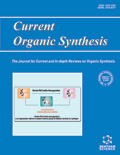
CURRENT ORGANIC SYNTHESIS
Innovating Synthesis, Inspiring DiscoveryCURRENT ORGANIC SYNTHESIS, published by Bentham Science Publishers Ltd, is a leading journal in the field of organic chemistry and biochemistry that serves as a vital platform for researchers and professionals advancing the synthesis of organic compounds. With an ISSN of 1570-1794 and an E-ISSN of 1875-6271, it boasts a significant impact within its category, ranked in the Q3 quartile for both biochemistry and organic chemistry as of 2023. The journal covers innovative research and reviews that enhance our understanding of organic synthesis methodologies, showcasing contributions that advance the field. Operating from Sharjah, United Arab Emirates, CURRENT ORGANIC SYNTHESIS has evolved since its inception in 2005, providing access to a wealth of information essential for students, professionals, and researchers alike. While it currently does not offer open access, the journal continues to maintain a strong community of scholars dedicated to fostering dialogue and innovation in the organic sciences.

ACS Organic & Inorganic Au
Fostering Collaboration in Chemical SciencesACS Organic & Inorganic Au, published by the American Chemical Society, stands as a premier open-access journal dedicated to advancing the fields of organic and inorganic chemistry. Since its inception in 2021, this journal has swiftly risen to prominence, achieving a commendable Q1 classification in Inorganic Chemistry, Organic Chemistry, and Physical and Theoretical Chemistry as of 2023. With an ISSN of 2694-247X, it provides a vital platform for researchers, professionals, and students to disseminate their findings and engage with cutting-edge work across converged disciplines. Operating from its headquarters in Washington, DC, ACS Organic & Inorganic Au is committed to fostering a collaborative research environment, encouraging rigorous peer review, and ensuring the wide accessibility of high-quality scholarly articles. With its open-access model, readers worldwide can freely access and utilize research findings, promoting a global exchange of knowledge crucial for driving innovation in chemistry.

CCS Chemistry
Pioneering Discoveries in the World of ChemistryCCS Chemistry, published by the esteemed Chinese Chemical Society, is a leading open-access journal dedicated to advancing the field of chemistry. Since its inception in 2019, the journal has rapidly gained recognition, achieving a remarkable impact factor that places it in the prestigious Q1 category in Chemistry (Miscellaneous) as of 2023. With a Scopus ranking of #41 out of 408 in General Chemistry, CCS Chemistry represents the top 10th percentile in its category, reflecting its commitment to high-quality research and innovation. The journal serves as a vital platform for researchers and professionals to share their findings, showcase cutting-edge methodologies, and engage with the latest developments in various chemistry subfields. Accessible to a global audience, CCS Chemistry ensures that groundbreaking research is available without barriers, making it an indispensable resource for students and academics aiming to stay at the forefront of chemical sciences. For further details, submissions, and access to published articles, please visit the journal's website.
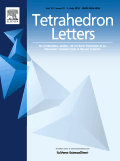
TETRAHEDRON LETTERS
Fostering Collaboration in the Chemical Sciences LandscapeTETRAHEDRON LETTERS, published by Pergamon-Elsevier Science Ltd, is a leading journal in the fields of Biochemistry, Drug Discovery, and Organic Chemistry, with a rich legacy since its inception in 1959. This prestigious journal serves as a vital resource for researchers and professionals dedicated to advancing the understanding of chemical sciences, featuring high-impact research that influences both academic and practical applications. Although it is currently classified in the third quartile across its categories for 2023, its rigorous peer-review process ensures the publication of quality research that contributes to the scientific community. With an ISSN of 0040-4039 and an E-ISSN of 1873-3581, TETRAHEDRON LETTERS is easily accessible for those in the academic landscape seeking to stay abreast of innovative developments. Researchers, professionals, and students alike will find invaluable insights and collaborative opportunities within the pages of TETRAHEDRON LETTERS, making it an essential read for anyone involved in the chemical sciences.
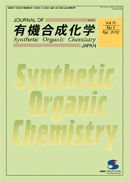
JOURNAL OF SYNTHETIC ORGANIC CHEMISTRY JAPAN
Illuminating pathways to groundbreaking discoveries in synthesis.JOURNAL OF SYNTHETIC ORGANIC CHEMISTRY JAPAN, published by the SOCIETY OF SYNTHETIC ORGANIC CHEMISTRY, JAPAN, is an esteemed publication specializing in the dynamic field of organic chemistry. With a rich history dating back to 1944, this journal aims to disseminate pivotal research findings and innovative methodologies in synthetic organic chemistry, fostering collaboration and knowledge exchange among researchers and professionals. Although it currently holds a modest ranking in the Q4 quartile for organic chemistry, its commitment to advancing the discipline remains steadfast. The journal primarily caters to scholars and students seeking to delve deeper into organic synthesis, highlighting original articles, reviews, and methodological studies. While access to the journal is not open, its contributions to the field are essential for anyone invested in understanding the complexities of organic chemistry. We invite you to explore the journal's offerings and enhance your expertise in synthetic organic processes.
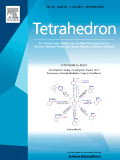
TETRAHEDRON
Elevating scientific dialogue with rigorous peer-reviewed research.TETRAHEDRON, published by Pergamon-Elsevier Science Ltd, is a leading peer-reviewed journal that has been pivotal in advancing the fields of Biochemistry, Drug Discovery, and Organic Chemistry since its inception in 1957. With an ISSN of 0040-4020 and an E-ISSN of 1464-5416, this journal provides a platform for the dissemination of cutting-edge research and innovative methodologies that contribute significantly to the scientific community. Recognized for its rigorous editorial standards, TETRAHEDRON has been categorized in the Q3 quartile for 2023 across its relevant fields, reflecting its solid impact within the scientific sphere. Despite the current absence of Open Access options, the journal continues to engage a diverse readership, offering invaluable insights and advancements that fuel both academic and industrial applications. With an ongoing commitment to excellence, TETRAHEDRON remains an essential resource for researchers, professionals, and students aiming to stay at the forefront of chemistry and biochemistry research.
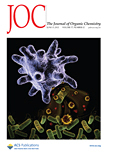
JOURNAL OF ORGANIC CHEMISTRY
Driving Progress in the World of Organic ChemistryJournal of Organic Chemistry, published by the American Chemical Society, is a prestigious peer-reviewed journal dedicated to advancing the field of organic chemistry. With an ISSN of 0022-3263 and an E-ISSN of 1520-6904, this journal has established itself as a key platform for disseminating high-quality research since its inception in 1936. Residing in the Q2 category for Organic Chemistry as of 2023, it ranks #64 out of 211 in Scopus, positioning itself within the top 69th percentile of its field. Researchers and professionals can access vital findings and innovative methodologies that drive the understanding and application of organic chemical principles. Although the journal is not open access, it remains a crucial resource in academia and industry, contributing significantly to the scientific community's knowledge base. For detailed insights and cutting-edge research, the journal continues to be an essential read for those engaged in the dynamic and evolving landscape of organic chemistry.

ARKIVOC
Unlocking the Potential of Organic Chemistry ResearchARKIVOC is an esteemed open-access journal dedicated to the field of Organic Chemistry, published by ARKAT USA INC. Since its inception in 2000, ARKIVOC has aimed to disseminate high-quality research and advancements in organic chemistry, fostering an international exchange of knowledge within this ever-evolving discipline. With its ISSN 1551-7004 and E-ISSN 1551-7012, the journal is committed to providing accessible content free of charge to researchers, students, and professionals around the globe. Although currently categorized in the fourth quartile of Organic Chemistry with a Scopus rank of #188 out of 211, ARKIVOC continues to encourage the publication of innovative works and critical reviews that highlight emerging trends and methodologies in organic synthesis, reaction mechanisms, and material sciences. Its open-access model since 2000 ensures that valuable contributions to scientific knowledge are widely available, promoting collaboration and discovery. The journal is based in the United States, with its editorial office located at the University of Florida, under the guidance of prominent chemists. ARKIVOC provides an essential platform for those deeply engaged in organic chemistry research, supporting the advancement of science for future generations.
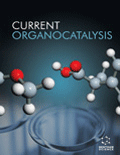
Current Organocatalysis
Empowering Discoveries in Analytical and Organic ChemistryCurrent Organocatalysis is a premier academic journal dedicated to the dynamic field of organocatalysis, published by Bentham Science Publishers, Ltd. Based in the United Arab Emirates, this journal has been a valuable resource for researchers since its inception in 2014 and will continue to publish impactful articles until 2024. The journal provides a platform for sharing groundbreaking research, reviews, and insights that significantly contribute to the fields of Analytical Chemistry, Catalysis, and Organic Chemistry. With a Q4 ranking in several chemistry categories, it identifies and disseminates emerging strategies and methodologies in organocatalysis, promoting collaboration and advancement in the community. While it operates on a subscription basis, the journal ensures accessible content for its audience to further supplement academic learning and professional development. Researchers, professionals, and students are encouraged to explore and contribute to this critical field, leveraging the journal as an essential resource for the latest trends and innovations in organocatalysis.